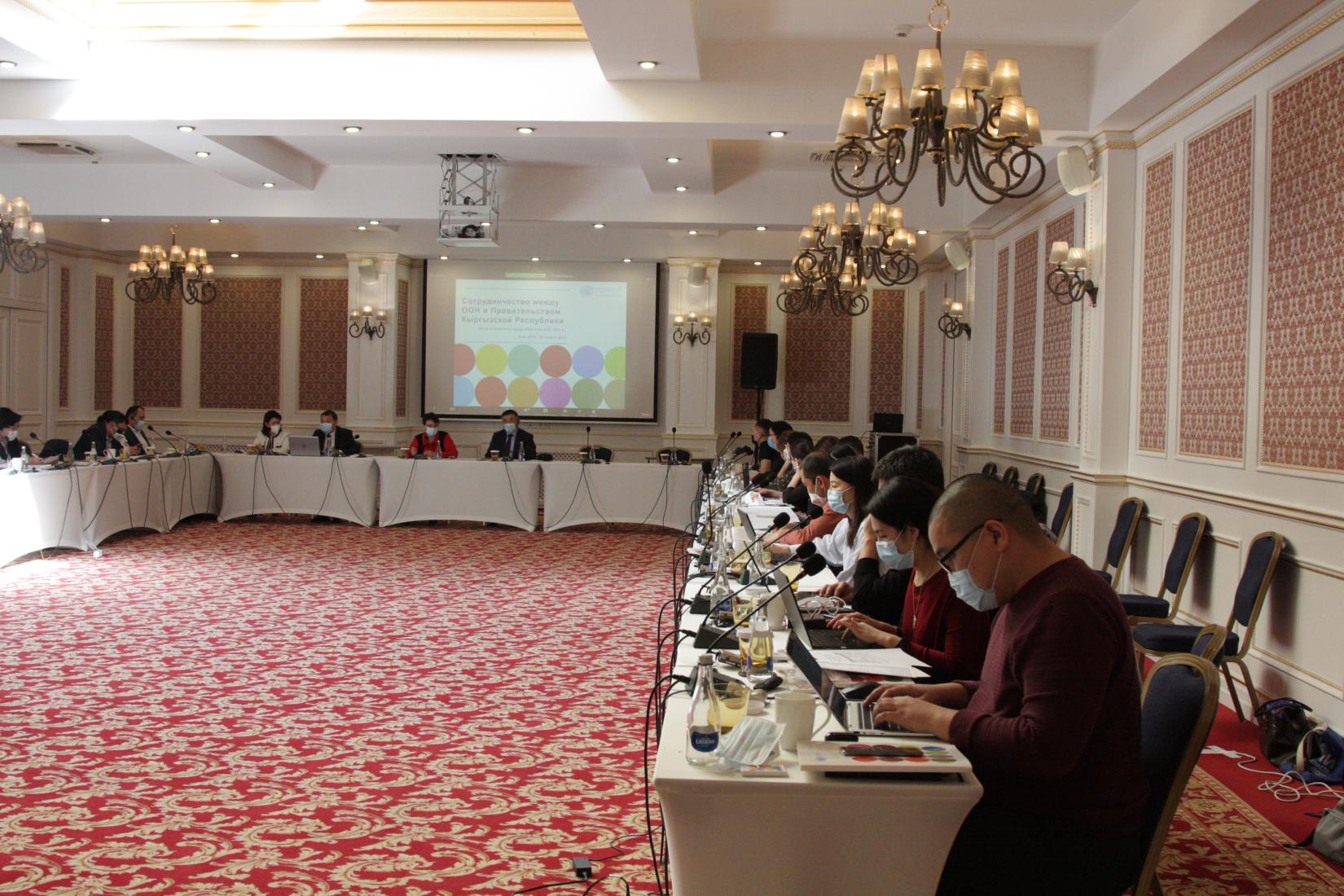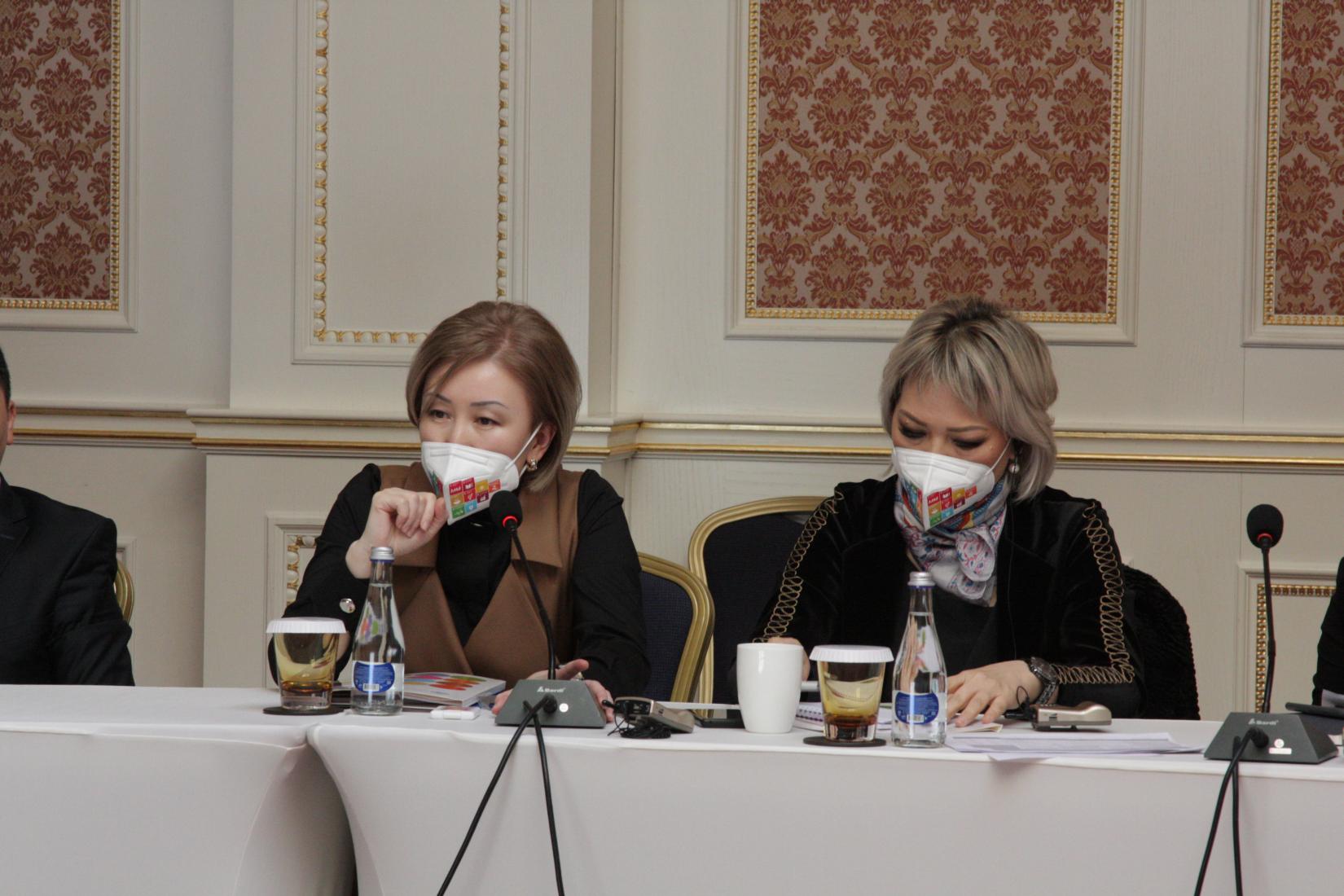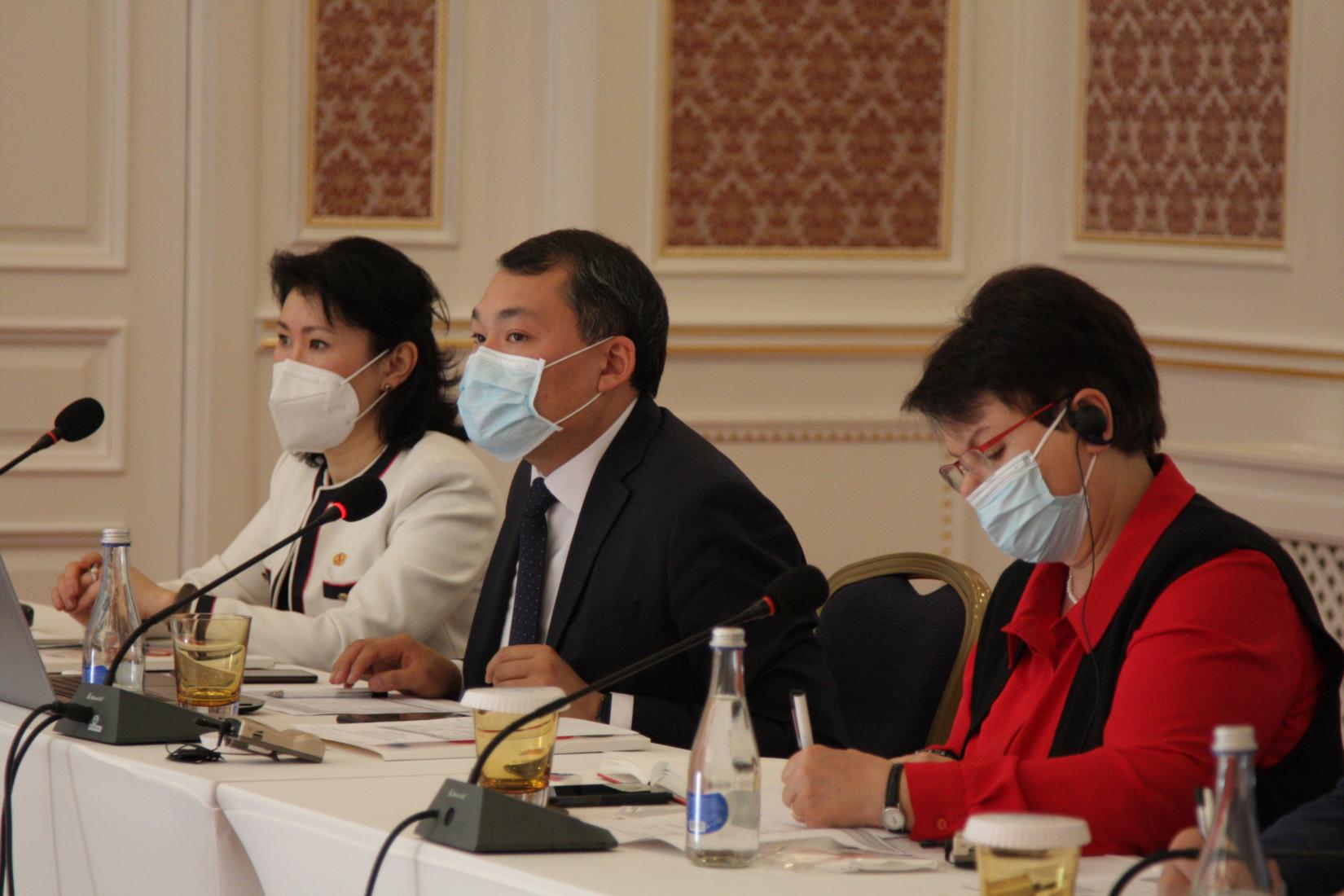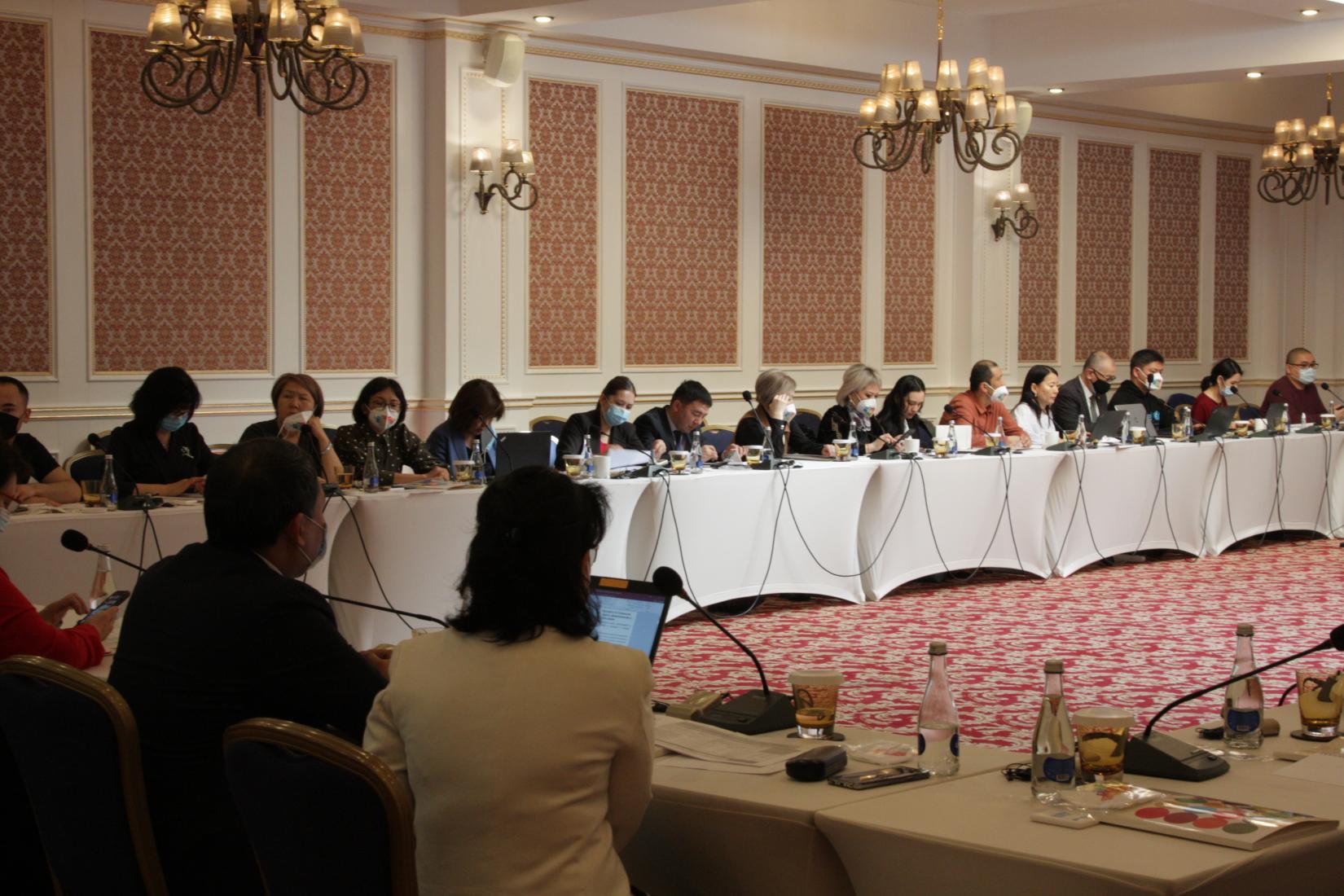UN and National Counterparts: Social Protection, Health and Education Workplan for 2021 and 2022
01 April 2021
The United Nations Country Team and the national partners are conducting a series of discussions on the United Nations Development Assistance Framework (UNDAF) Joint Work Plans for 2021 and 2022.
Bishkek, March 26, 2021 – UNICEF as a chair of Results Group (priority 4) on Social protection, Health and Education held consultations with the national counterparts, as part of the ongoing discussions with the line ministries on UNDAF Joint Work Plans (JWPs) for 2021 and 2022.
The current UNDAF was signed with the Government in 2017 for 2018 and 2022, covering four thematic priorities:
- Sustainable and Inclusive Economic Growth;
- Good Governance, Rule of Law, Human rights, and Gender Equality;
- Environment, Climate Change, and Disaster Risk Management;
- Social Protection, Health and Education;
The UN committed in 2017 that by the end of 2021 it would try to mobilize 221.1 million USD as the UN contribution to the development in the Kyrgyz Republic, by supporting the Government in realizing the national development strategies through a whole-of-government and a whole-of-society approach to achieve Sustainable Development Goals and ensure that no one in the Kyrgyz Republic is left behind.
The JWPs for 2021-2022 will be presented soon to the UNDAF Steering Committee, co-chaired by Prime Minister of the Kyrgyz Republic and the UN Resident Coordinator.

The national technical discussion on Social protection, Health and Education JWP of the UNDAF gathered more than 80 participants. Christine Jaulmes, UNICEF Representative, chaired the meeting sharing the facilitation role with the representatives from UNFPA, UNAIDS, and UNDP.
The participants reviewed the stages of the UNDAF implementation process. 2020 had an enormous impact on UNDAF and JWPs because of the COVID-19 pandemic. UNDP presented the Socio-Economic Response Framework which represents an integrated support package that the UN system, with UNDP providing technical leadership, can leverage to protect the needs and rights of people impacted by the pandemic, with a particular focus on people at the risk of being left behind. The SERF is guided by the UN framework for immediate socio-economic response to COVID-19 that was launched by UN Secretary-General in April 2020. Following the completion of the Disaster Response Coordination Unit’s (DRCU) response to the pandemic in 2020, all the remaining DRCU activities have now been embedded into the SERF, which is an integral part of the JWPs.
As COVID-19 shows reoccurring waves, it negatively impacts the macroeconomic and socioeconomic situation in the country, resulting in a drop in private consumption, import and export shocks and reduced fiscal space, as well as poor-quality employment and lack of decent jobs, fall in remittances, youth unemployment, inflation, prices increase, disruptions in health and other social services, and increase in social tensions potentially leading to domestic and other forms of violence, threatening political stability.
Christine Jaulmes, UNICEF Representative, underlined that because of the COVID-19 crisis, the UN programmes have been adjusted to be able to provide substantial support and look at the way forward while learning from the crisis.
Kamchibek Uzakbaev, the Director of the National Mother and Child Care Center stated: “The National Mother and Child Care Center is one of the main partners of the UN agencies in the implementation of JWP. Thus, we also monitor the progress of our joint work. COVID-19 showed how essential this collaboration is. UN helped during the pandemic to save lives and support our medical staff. The crisis showed that the human resources were the key.”

“No one expected COVID to occur in 2020, and it changed our reality so much. It affected the pension system in the country. The UNDAF covers the social sector, and having this assistance is very valuable. Should be noted that the pension fund is a stable income for many people in the country,” shared Gulnura Djumataeva, the First Deputy Chairman of Social Fund.
Azamat Baialinov, the Head of the UNFPA, presented the UNDAF JWP for 2021-2022. The main objective of the Social Protection, Health and Education pillar of the UNDAF by 2022 is to ensure that social protection, health and education systems are more efficient and inclusive and deliver quality services. It’s expected to have four intermediate results in the above-mentioned areas to cover 20 indicators and 34 actions or events. The total planned budget is 36,747,001 USD and the available sum is 7,523,881 USD.

After the presentation of the proposed JWP for 2021-2022, there was a panel discussion on the following topics: access to education for children of migrants, private sector engagement, air pollution, safe education environment, food safety, the law on volunteering etc.
Kamchibek Uzakbaev, the Director of the National Mother and Child Care Center raised questions on digitalization, which is one of the governmental priorities, and asked to elaborate on this JWP activity as well as called to discuss joint activities against air pollution.
Cholpon Imanalieva, UNICEF Health Specialist advised that UNICEF is working on telemedicine which corresponds to a digitalization of the health system. Regarding air pollution, UNICEF is taking the first approach to assessing and analyzing the impact of air pollution on children.
Anna Kirilenko, the Director of the “BIOM” Ecological movement, made a query about a Safe education environment that covers access to the basic water and sanitation infrastructure, reconsidering Sanitary and Epidemiological Rules.

Chynara Kumenova, UNICEF Education Officer, informed that within the next two years, UNICEF will continue supporting two projects on educating children on knowledge and practices of safe behavior of children during emergencies, while another project will assess WASH situation in schools and kindergartens. Also, Sanitary and Epidemiological Rules in school constructions have been partially improved. The new schools include the inclusivity component at the construction stage; however, the existing schools have difficulties introducing them.
Concluding the meeting, Christine Jaulmes, stated that implementation of the JWP requires essential efforts in the mobilization of funds and overcoming the challenges in the light of the pandemic which has started in 2020 but is still ongoing. The JWP on the Social Protection, Health and Education for 2021-2022 will be finalized by addressing commentaries voiced during the consultations and will be presented during the upcoming UNDAF Steering Committee meeting, chaired by the Prime Minister and the UN Resident Coordinator.

